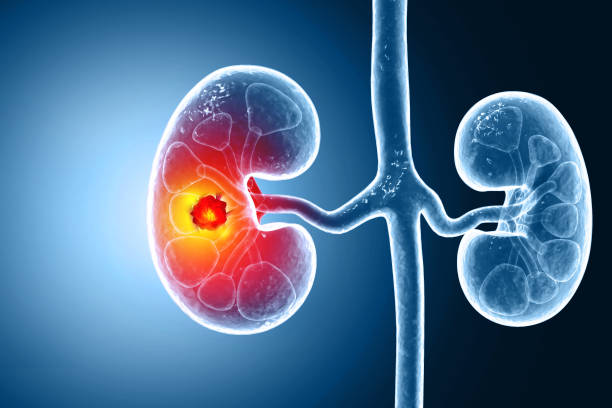Pediatric kidney diseases
Home / Paediatric kidney diseases
Pediatric kidney diseases
Pediatric kidney diseases encompass a range of conditions that affect kidney function in children. These diseases can be congenital (present at birth) or acquired during childhood. They can lead to acute or chronic kidney damage, affecting a child's growth, development, and overall health. Early diagnosis and management are crucial in preventing long-term complications like chronic kidney disease (CKD) or kidney failure.

1. Congenital Kidney Diseases:
a. Congenital Abnormalities of the Kidney and Urinary Tract (CAKUT):
- These are structural abnormalities of the kidneys or urinary tract that occur during fetal development
-
Renal agenesis:
Absence of one or both kidneys at birth. -
Kidney hypoplasia:
Underdeveloped kidneys. -
Multicystic dysplastic kidney:
The kidney is filled with cysts and doesn't function properly. -
Vesicoureteral reflux (VUR):
The backward flow of urine from the bladder into the kidneys, which can cause recurrent urinary tract infections (UTIs) and kidney damage. - CAKUT is a leading cause of pediatric CKD, accounting for about 30-50% of cases.
b. Polycystic Kidney Disease (PKD):
- Autosomal Recessive Polycystic Kidney Disease (ARPKD) is a genetic disorder that affects infants and young children. It causes the development of fluid-filled cysts in the kidneys and can lead to kidney failure.
- Symptoms often present early in life, with enlarged kidneys, high blood pressure, and kidney dysfunction. It can also affect the liver.
2. Glomerular Diseases:
a. Congenital Abnormalities of the Kidney and Urinary Tract (CAKUT):
- A group of symptoms caused by damage to the kidney's glomeruli (filtering units), leading to proteinuria (high levels of protein in the urine), hypoalbuminemia (low blood protein), hyperlipidemia (high cholesterol), and edema (swelling).
- The most common form in children is minimal change disease (MCD), which responds well to steroid treatment.
- Some children may develop more severe forms like focal segmental glomerulosclerosis (FSGS), which may not respond to steroids and can lead to CKD.
b. Post-Infectious Glomerulonephritis:
- Inflammation of the glomeruli following an infection, often caused by streptococcal throat infections (post-streptococcal glomerulonephritis).
- Symptoms include hematuria (blood in urine), edema, hypertension, and reduced urine output.
- The condition is usually self-limiting but may lead to CKD in rare cases.
c. IgA Nephropathy:
- A condition where IgA antibodies build up in the glomeruli, causing inflammation. It is one of the most common causes of glomerulonephritis in children.
- Symptoms include recurrent blood in the urine (hematuria), especially following infections like colds.
- It can lead to kidney damage and, in some cases, CKD over time.
3. Tubular Disorders:
a. Fanconi Syndrome:
- A disorder of the kidney’s proximal tubules, leading to the improper reabsorption of glucose, amino acids, phosphate, and bicarbonate.
- Symptoms include rickets (soft bones), growth retardation, dehydration, and electrolyte imbalances.
- It may be inherited or acquired due to certain medications or conditions.
b. Renal Tubular Acidosis (RTA):
- A group of disorders where the kidneys fail to properly acidify urine, leading to metabolic acidosis (high acid levels in the blood).
- Type 1 (Distal RTA): The distal tubules fail to excrete hydrogen ions.
- Type 2 (Proximal RTA): The proximal tubules fail to reabsorb bicarbonate.
- Type 4 RTA: Associated with hyperkalemia (high potassium levels).
- Children may present with poor growth, bone deformities, and recurrent episodes of dehydration.
4. Acute Kidney Injury (AKI):
- AKI in children is a sudden decline in kidney function, often due to severe dehydration, infections (e.g., sepsis), certain medications, or trauma.
- Symptoms include reduced urine output, fluid retention, electrolyte imbalances, and fatigue.
- Prompt treatment is essential to prevent long-term damage and progression to CKD.
5. Chronic Kidney Disease (CKD):
- CKD in children can develop due to various underlying conditions, such as CAKUT, glomerular diseases, or tubular disorders.
- CKD in children can impair growth and development, leading to complications like anemia, bone disease, and delayed puberty.
- Early diagnosis and management can help slow the progression of CKD and prevent kidney failure, which may require dialysis or kidney transplantation.
6. Urinary Tract Infections (UTIs):
- UTIs are common in children and can lead to kidney damage if recurrent or untreated. Infants and young children may present with fever, irritability, or poor feeding, while older children may have painful urination or abdominal pain.
- Vesicoureteral reflux (VUR), a condition where urine flows backward from the bladder to the kidneys, increases the risk of recurrent UTIs and kidney scarring.
7. Hypertension in Children:
- High blood pressure in children can be caused by kidney diseases, such as glomerulonephritis, polycystic kidney disease, or renal artery stenosis.
- Managing hypertension in children with kidney disease is critical to preventing long-term cardiovascular complications.
8. Wilms Tumor (Nephroblastoma):
- A rare kidney cancer that primarily affects children, usually under the age of 5.
- Symptoms include abdominal swelling, fever, blood in urine, and loss of appetite.
- With early detection and treatment (surgery, chemotherapy, and sometimes radiation), the prognosis is generally good.
9. Genetic and Inherited Kidney Diseases:
- In addition to ARPKD, there are other genetic disorders that affect kidney function in children, including:
- Alport Syndrome: A genetic disorder affecting the glomeruli, causing hematuria, hearing loss, and eye abnormalities.
- Cystinosis: A rare metabolic disorder where the amino acid cystine accumulates in cells, leading to kidney damage and Fanconi syndrome.
10. Treatment and Management:
Conclusion:
Tubular disorders are a diverse group of kidney diseases that can lead to significant electrolyte imbalances, dehydration, and kidney dysfunction. Early diagnosis and appropriate treatment are crucial for preventing complications, including chronic kidney disease and, in severe cases, kidney failure. Many tubular disorders require ongoing management, especially in inherited forms, but with proper care, patients can maintain a good quality of life.
Book An Appointment
Other services
- Diabetes
- Hypertension
- Febrile illness
- Glomerular disease
- Liver and gastrointestinal diseases
- Anemia
- Pediatric kidney disease
- Tubular disorders
- Chronic kidney disease
- Acute kidney injury
- Urinary tract infection and stone
- Renal transplant work up
- Respiratory disorders
